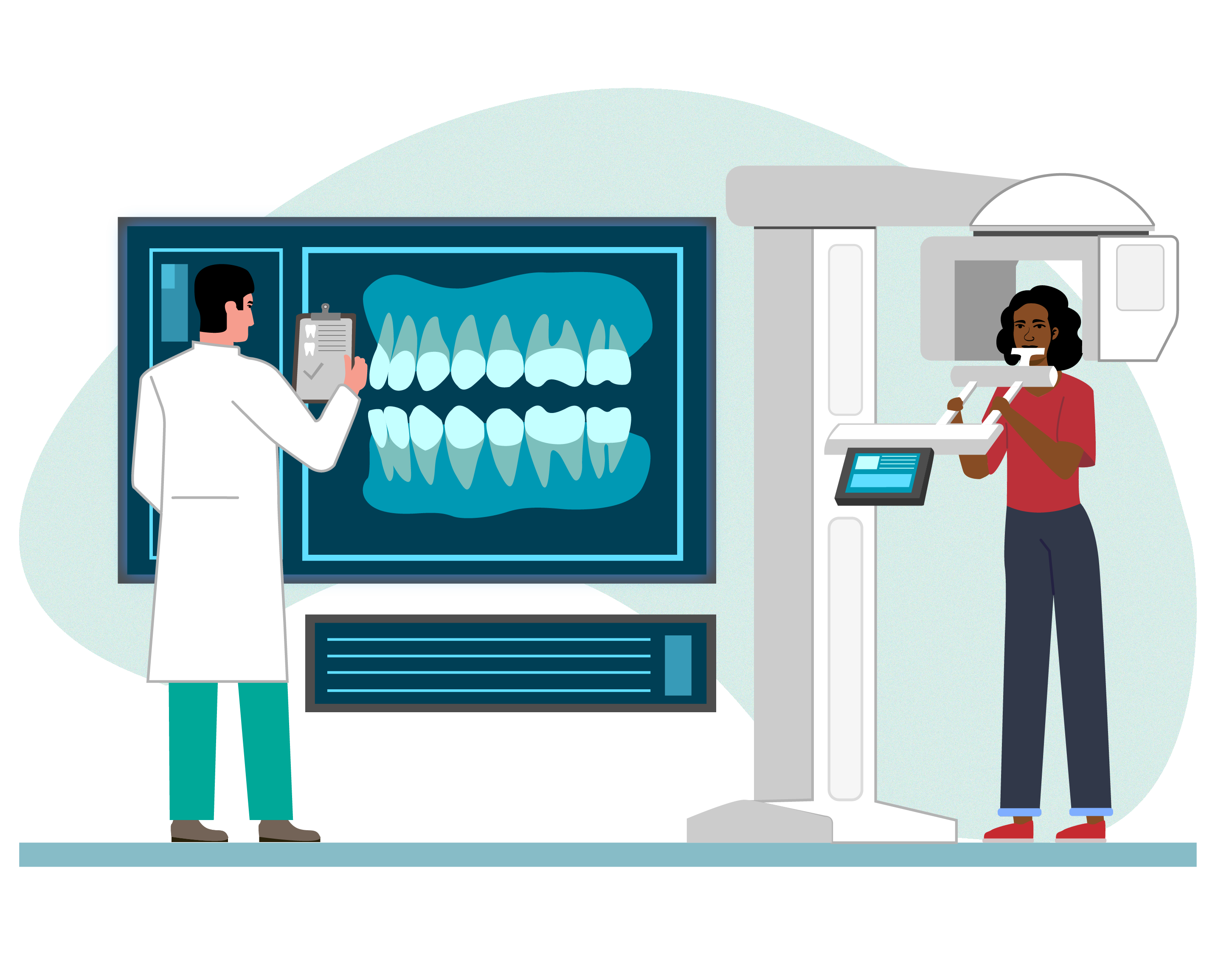
Dentists and their teams can be the first to detect a patient’s eating disorder because early warning signs can appear in the mouth.
When someone is eating very little or following a very restrictive diet, they may not get the essential vitamins and nutrients needed to maintain good health. Teeth also require a varied and balanced diet to stay strong and healthy. Calcium, iron, vitamin C and B vitamins are especially important for maintaining oral health. Gums are also impacted by restrictive eating disorders and can become inflamed and bleed more easily without proper nutrition.

Canker sores and bad breath also result from a lack of vitamin B3 or niacin. Chapped, cracked and red lips are associated with poor nutrition and dry mouth.
When someone purges or vomits frequently, stomach acid in their mouth begins to wear away tooth enamel. Once tooth enamel is damaged, teeth can develop cavities much easier.
Purging can also cause damage to teeth, gums, and the soft palate (roof of the mouth). Cuts and bruises may appear on the soft palate when purposefully inducing vomiting by inserting hands into the mouth.
People with eating disorders and other mental health conditions may struggle to keep up with good oral health habits such as brushing and flossing teeth regularly. Without a good routine, oral health issues will arise more frequently and may not be treated due to the individual avoiding or missing regular preventive care visits.

For those struggling with eating disorders, a dentist’s office can be a safe place. Dentists can recognize the signs of an eating disorder and refer patients for help. Dentists can also advise the patient on improving oral health, minimizing damage caused by the disorder, and helping to restore and treat damage already done to the mouth.
If you are struggling, seek help from the eating disorder hotline or speak to your medical provider or care team.
Resources:
This information in this post is for general educational purposes only and does not warrant or represent any information as related to health as specifically appropriate for you. It is not intended to be medical advice or replace the relationship that you have with your health care providers. You should always seek medical advice on any diagnosis or treatment from a qualified health care provider. The information is provided “as is” without any representations or warranties, express or implied.





